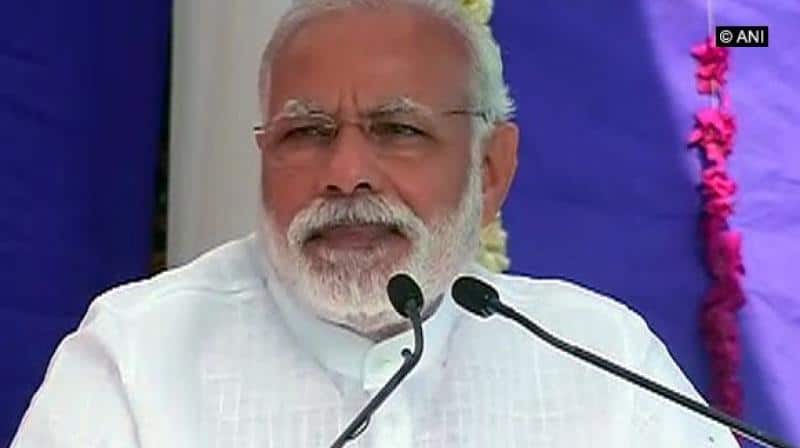BY Jyoti Malhotra
As the high-voltage Gujarat election campaign winds down, Prime Minister Narendra Modi’s comments on the Indian Muslim-Pakistan Muslim continuum is not only having a deeply divisive effect inside the country, it is also poisoning the waters beyond India’s borders.
The Pakistan foreign office, in a statement on Monday morning said, “India should stop dragging Pakistan into its electoral debate and win victories on own strength rather than fabricated conspiracies, which are utterly baseless and irresponsible.”
Question is, why did the PM, in his speech in Palanpur, Gujarat, on Sunday drag former prime minister Manmohan Singh’s name into the contentious argument in which he named both former vice-president Hamid Ansari as well as Pakistan high commissioner Sohail Mehmood, who were present last week at a dinner meeting organized by suspended Congressman Mani Shankar Aiyar?
The guest list at Aiyar’s dinner was pretty secular, and included former external affairs minister K Natwar Singh, as well as several former high commissioners to Pakistan such as Satinder K Lambah, Sharad Sabharwal, TCA Raghavan as well as a former army chief Deepak Kapoor.
So why did the PM pick on only the obvious Muslim names like Hamid Ansari and Sohail Mehmood – besides Dr Manmohan Singh, of course – in his Palanpur speech?
He also targetted an alleged comment by a Pakistani general saying Congress leader Ahmed Patel should be made the chief minister of Gujarat, by asking whether Pakistan was now going to influence an Indian election.
As the election campaign has become shriller and Congress leader Rahul Gandhi has perceptibly taken the high moral ground, Modi’s speeches seem to have increasingly focused on anti-Muslim rhetoric. Even RSS leaders are beginning to wonder if the election, that too in BJP’s favourite home state Gujarat, is becoming so tight that the PM is being forced to add to the vitriol.
Dragging Pakistan high commissioner Sohail Mehmood through this high-voltage rhetoric is decidedly odd, especially as Mehmood’s presence on Indian territory is legitimized since he presented his credentials to President Ram Nath Kovind in August, the BJP’s own candidate.
So does the PM’s attack on the Pakistan high commissioner now mean that he has doubts about the credentials ceremony of his own government, a sacrosanct event that draws its strength from the Geneva/Vienna convention?
The PM’s attack on Aiyar, a day after Aiyar accused the PM of being a “neech kisam ka aadmi hai,” a man of low intellectual thought, was equally astounding.
“Congress leaders are speaking in a language that is not acceptable in a democracy…This is insulting. This is nothing but a mindset of the Mughals,” the PM said.
Whatever did he mean by conflating the long-departed Mughals – who, at the height of their empire, employed Hindu generals to fight their battles against other Hindu kings — with a throwaway remark by Aiyar, at best unbecoming of a diplomat-turned-politician ?
Only two days ago, Modi accused Congressman Salman Nizami of saying that he wants “Azaad Kashmir,” as well as made uncalled for remarks against the PM, asking “whose son is he?” As the Congress went into damage control mode – just like it had done with Mani Shankar Aiyar two days before, by suspending him – now saying Nizami was not a Congress worker, the former Kashmiri journalist from Banihal denied he had said anything anti-national.
Nizami wanted to know why the PM was picking on him in the first place. “I am a nobody, I joined the Congress only three years ago,” he said.
From targeting the Congress’ “Mughal mindset” to picking on Salman Nizami The Nobody, to attacking Hamid Ansari to disparaging the Pakistan high commissioner, the prime minister seems to have made the short leap from Indian Muslims to Pakistani Muslims. It is as if the partition of India in 1947, only 70 years ago, is still such a burning issue that needs to be constantly addressed by the prime minister.
With the winter session of Parliament only a couple of days old when the results for the Gujarat election come in, will the prime minister be able to put aside the vitriol and work with the Congress party on Bills that demand the attention of the Opposition as well? Will he be able to lead with skill and panache India’s difficult policy with Pakistan, having torn up the Pakistan high commissioner’s presence on Indian soil ?
Sources point out that Modi’s obsession with Pakistan manifests in several ways – including critical comments he made to US Secretary of State Rex Tillerson during his recent trip to India. But the Americans, or any other country, will do what is in their national interest, not in India’s – that is the first lesson of politics.
The second lesson is that the PM is the prime minister of the entire country, not just the BJP. All state election campaigns will come to an end, sooner than later. Then the country will beckon.
Courtesy: The Indian Express

